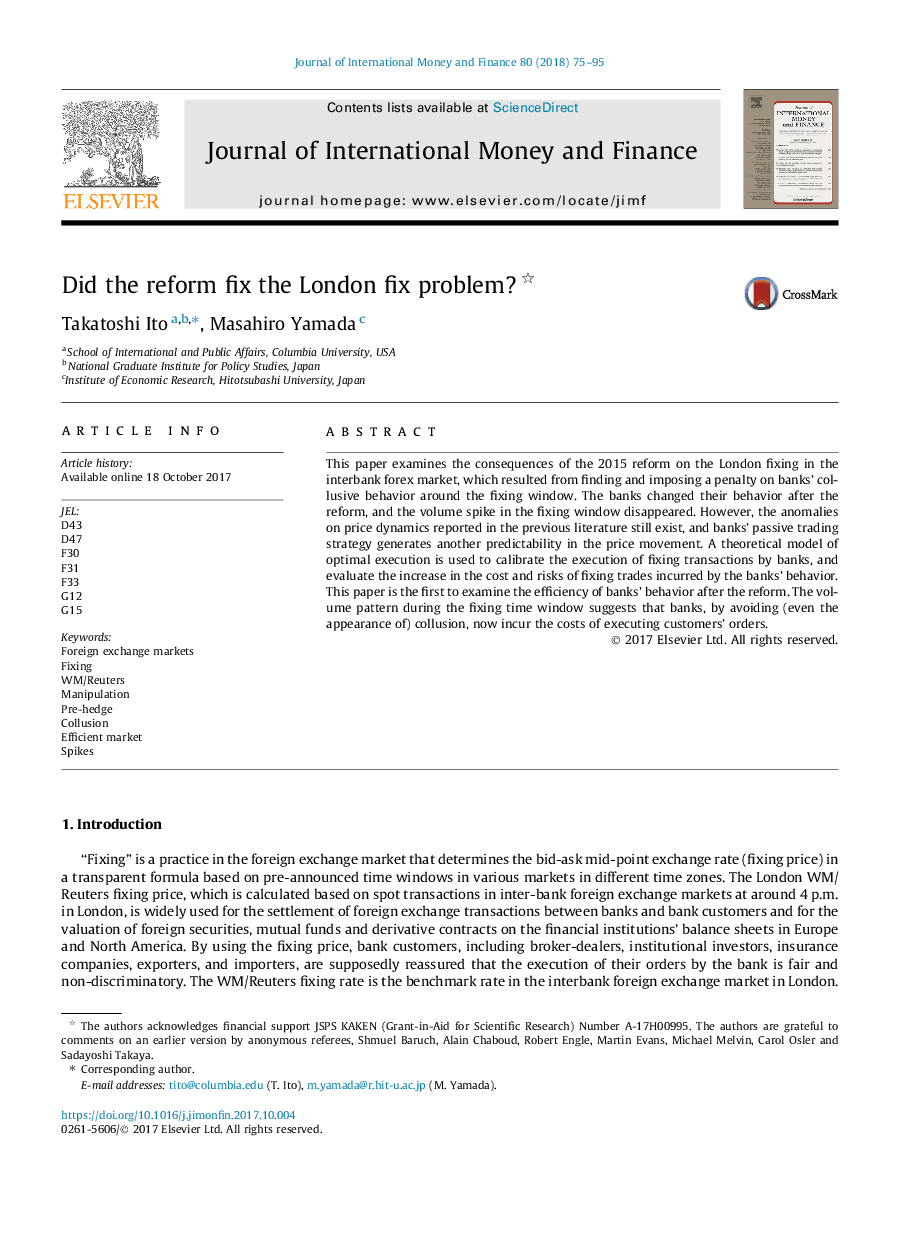| Article ID | Journal | Published Year | Pages | File Type |
|---|---|---|---|---|
| 7365371 | Journal of International Money and Finance | 2018 | 21 Pages |
Abstract
This paper examines the consequences of the 2015 reform on the London fixing in the interbank forex market, which resulted from finding and imposing a penalty on banks' collusive behavior around the fixing window. The banks changed their behavior after the reform, and the volume spike in the fixing window disappeared. However, the anomalies on price dynamics reported in the previous literature still exist, and banks' passive trading strategy generates another predictability in the price movement. A theoretical model of optimal execution is used to calibrate the execution of fixing transactions by banks, and evaluate the increase in the cost and risks of fixing trades incurred by the banks' behavior. This paper is the first to examine the efficiency of banks' behavior after the reform. The volume pattern during the fixing time window suggests that banks, by avoiding (even the appearance of) collusion, now incur the costs of executing customers' orders.
Keywords
Related Topics
Social Sciences and Humanities
Economics, Econometrics and Finance
Economics and Econometrics
Authors
Takatoshi Ito, Masahiro Yamada,
